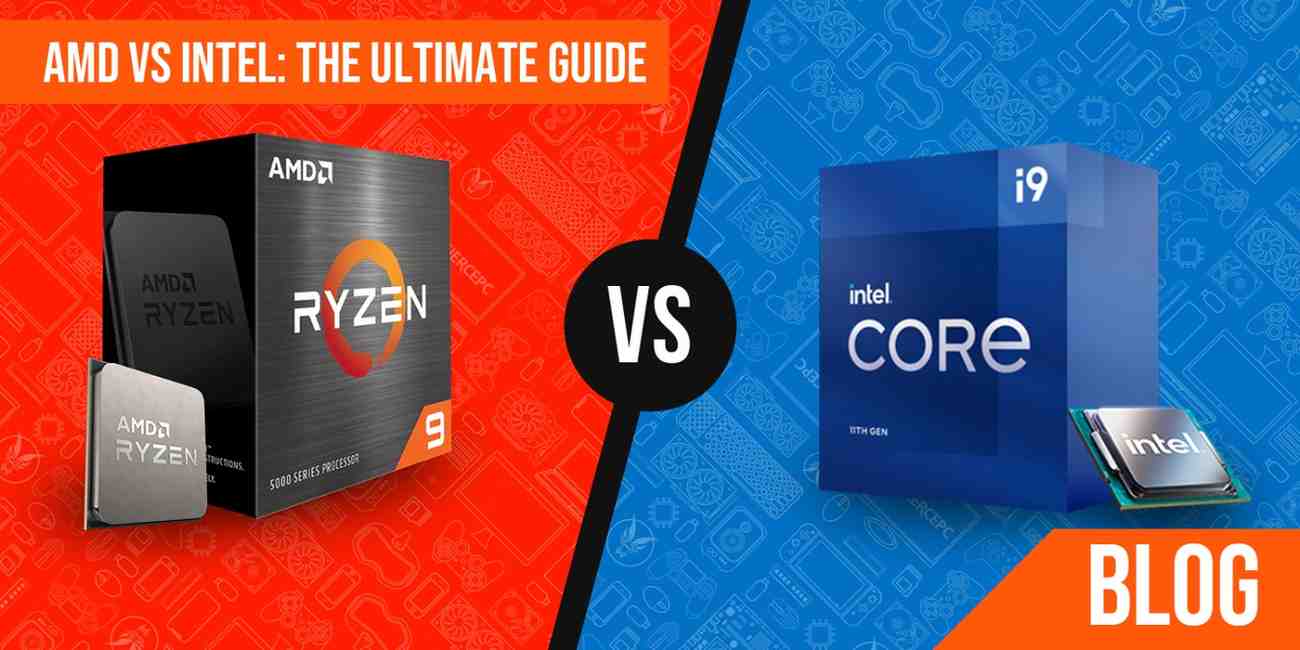


The rivalry between Ryzen and Intel has reached new heights, with both manufacturers offering compelling options for different user needs
The battle between AMD’s Ryzen and Intel’s processors has been at the forefront of computing technology for years. With each passing generation, both companies push the boundaries of performance, efficiency, and innovation, creating a competitive landscape that benefits consumers and professionals alike. As we move into 2024, the rivalry between Ryzen and Intel has reached new heights, with both manufacturers offering compelling options for different user needs. But which one truly reigns supreme? In this article, we’ll dive deep into the key aspects that define this rivalry, helping you make an informed decision.
When it comes to raw performance, both Ryzen and Intel have made significant strides in recent years. AMD’s Ryzen processors, particularly the Ryzen 7000 series, have been praised for their multi-core performance, making them ideal for tasks that require heavy multitasking, such as video editing, 3D rendering, and gaming. The architecture improvements in the Ryzen 7000 series have further enhanced their processing power, with higher clock speeds and better thermal management.
On the other hand, Intel’s 14th generation processors have also shown remarkable improvements. The flagship models from Intel, like the Core i9 series, offer incredible single-core performance, which translates to better performance in applications that rely on single-threaded processes, such as gaming and certain professional software. Intel’s use of hybrid architecture, combining performance cores and efficiency cores, has also optimized power usage, making their processors more energy-efficient.
However, when it comes to multi-threaded tasks, Ryzen processors tend to have an edge due to their higher core counts. For gamers, though, Intel’s processors often deliver slightly better frame rates in some of the most demanding titles, thanks to their superior single-core performance. Ultimately, the choice between Ryzen and Intel in 2024 will depend on whether you prioritize multi-threaded performance or gaming efficiency.
One of the most critical factors for consumers when choosing between Ryzen and Intel is the price-to-performance ratio. AMD has historically positioned its Ryzen processors as more affordable alternatives to Intel’s offerings, often providing similar or better performance at a lower price point. This trend continues in 2024, with AMD offering competitive pricing across its Ryzen lineup.
The Ryzen 5 and Ryzen 7 series, for example, provide excellent value for mid-range and high-end users, respectively. These processors are priced lower than their Intel counterparts but offer comparable or even superior performance in various benchmarks. This makes Ryzen a preferred choice for budget-conscious users who don’t want to compromise on power.
Intel, however, has responded to AMD’s pricing strategy by adjusting its prices and offering better value in its mid-tier and high-end processors. The introduction of more affordable Core i5 and Core i7 models has made Intel more competitive in the price-to-performance arena. Nevertheless, AMD’s aggressive pricing still gives Ryzen an edge, especially for those looking for the best value in multi-core performance.
In the past, AMD’s processors were known for consuming more power and running hotter than Intel’s. However, with the release of the Ryzen 5000 and 7000 series, AMD has made significant improvements in power efficiency and thermal management. The use of a more advanced 7nm process technology has allowed Ryzen processors to deliver high performance without excessive power consumption or heat generation.
Intel’s 14th generation processors have also made strides in this area, particularly with the hybrid architecture that balances performance and efficiency cores. This approach has not only improved performance but also reduced power consumption and heat output. Intel’s processors are now more energy-efficient than ever, making them a solid choice for users who prioritize power efficiency.
In the ongoing battle of “Ryzen vs Intel,” there is no definitive winner; the best choice depends on your specific needs and preferences. If you prioritize multi-core performance, value for money, and future-proofing, AMD’s Ryzen processors are an excellent choice. They offer outstanding performance in multi-threaded tasks and are often more affordable than Intel’s offerings.
On the other hand, if you’re looking for the best gaming performance, superior single-core power, and a mature platform with plenty of options, Intel’s processors may be the better option. Their hybrid architecture and support for both DDR4 and DDR5 memory also provide flexibility for different types of builds.
